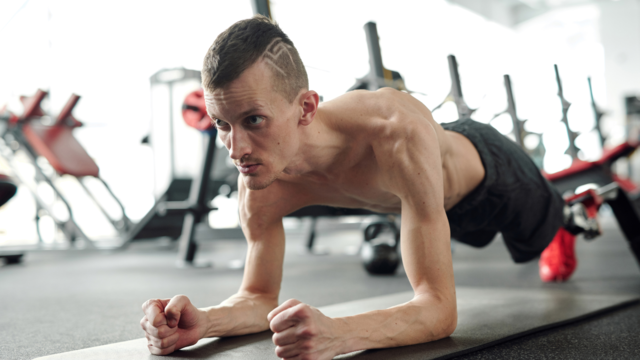|
Everyone says they want to get in shape and become a healthier, fitter person, but only some people stay on track. Getting into a consistent, regular workout routine can dramatically improve your physical and mental health – but if you have a physical disability, you might feel discouraged from starting.
Sticking to a workout routine is vital even if you're differently abled. Let's go over a few reasons why working out is so important and a few tips that will help you stick to your exercise regime. The Importance of Exercise with a Physical Disability Everybody needs exercise, but it's especially important if you have a physical disability. Of course, sticking to a regular exercise routine can improve your overall health and quality of life, but it also does so much more for differently abled people. If you have a physical disability, a consistent exercise routine may benefit you in the following ways:
It's important to note that exercise programs for people with physical disabilities should be tailored to the individual's abilities and needs. Working with a qualified physical therapist or exercise specialist can help ensure that exercise programs are safe, effective, and enjoyable. 5 Tips to Stick to Your Exercise Regime Most people know that exercise is good for the body, mind, and spirit, but keeping up with a new exercise routine can be a struggle, no matter how motivated you are. These simple tips will help you manage your physical disability and stay on track with your exercise regime. Just make sure you consult a healthcare professional before you get started. Let's go! 1. Begin with SMART Goals Sometimes, people with a physical disability find it more challenging than others to stick to their new exercise regime. Studies show that people with physical disabilities get less exercise than other people. While there may be many reasons for this, differently-abled people can often overcome their challenges by setting S.M.A.R.T. goals:
2. Write Down Your Exercise Plan Writing down an exercise plan and fitness goals means you're much more likely to achieve them. People that write down their goals are often more motivated to work towards them, and seeing clear benchmarks in written form will keep you on the right track. Additionally, writing down your goals will make it easier to develop a system you can stick with, even when you have a physical disability. 3. Get a Workout Buddy Working out with a gym buddy is a great way to stay motivated and stick to your exercise regime! Support from a gym buddy makes it fun to try new workouts and engage in friendly competition. Since people with physical disabilities often struggle with feelings of isolation, exercising with a partner can also quell any feelings of loneliness. It's best to have a gym buddy with the same physical fitness level as you, but this can be challenging when you have a physical disability. Your best bet is to work out in group exercise classes hosted by adaptive fitness specialists. This way, you can make new friends just like yourself and get in shape along the way! 4. Eat the Right Foods Every time you exercise, your body needs the right fuel to recover. A healthy diet will help you gain muscle quickly and have more energy throughout your daily life. Even if you have a physical disability, a healthy diet will be about the same as it would be for everyone else. When it comes to your diet, keep it simple. Make sure to eat lots of healthy carbs, fats, vegetables, and protein to fuel your body. And always discuss your meal plan with a licensed healthcare provider before making any major changes to your diet. 5. Work Out with an Adaptive Fitness Specialist An adaptive fitness specialist specializes in personal training for people with disabilities. As the name suggests, they adapt workouts to each person's needs. An adaptive fitness workout plan may include stretching, Pilates, strength training, and other fun activities. It's challenging for everyone to start a new workout plan. Still, an adaptive fitness specialist can spark your motivation and guide you through the unique obstacles of working out with a physical disability. With their guidance, you'll be able to stick to your new exercise regime and become your healthiest, happiest self! Live a Healthy Lifestyle with Let's Go Fitness If you’re looking for a special needs fitness program, and you’re not sure where to start, our team at Let’s Go Fitness is here to help! We provide special needs fitness programs for differently-abled individuals. At Let's Go Fitness, we strive to create a welcoming environment where anyone can make friends, get in shape, and have fun doing it! Our adaptive fitness specialists guide participants every step of the way. Whether our athletes need accommodations, modifications, or simply an understanding listener, we'll help everyone reach their goals. Are you ready to start a fitness journey for yourself or a loved one? Contact Let's Go Fitness today to learn more about our membership packages!
0 Comments
Leave a Reply. |
ABOUTLet's Go Fitness's blog page keeps you up to date with educational and instructional information for training with diverse abilities. Archives
June 2023
Categories |
Let's Go Fitness
© 2020 Let's Go Fitness is an online fitness platform for people of all abilities.


 RSS Feed
RSS Feed